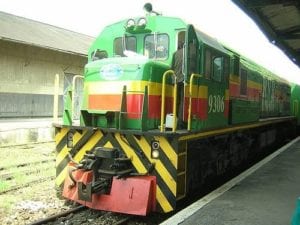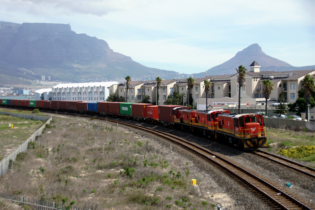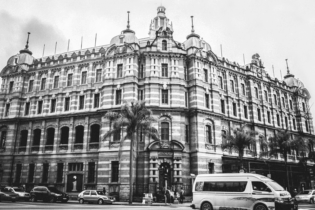The Board of Rift Valley Railways has unanimously voted to appoint Brown Ondego as Executive Vice-Chairman with responsibility for governmental and regulatory relations. Simultaneously, shareholders have appointed former Chief Operating Officer Darlan de David as Chief Executive Officer.
Ondego joined RVR in 2008 as Executive Chairman as the original concession agreement stood imperiled. He worked closely with the new shareholders and the regulators to successfully revise the shareholding structure. The two-year project paved the way for a targeted capital expenditure programme of more than USD 300 million to increase volumes and revenues significantly over the next five years and transform the Kenya-Uganda rail concession into a functioning, reliable service for the benefit of the East African people. Ondego, who had been appointed CEO to take on more operational responsibility during the first year of the capex programme, now resumes his original strategic function as Executive Vice-Chairman of the Board, where he will oversee external stakeholder relations in addition to setting the company’s broad strategic priorities. “We have made strong progress at RVR in the past four years, but considerable work remains. I look forward to working with Darlan in the years ahead as we build on a strong track record of accomplishment since 2008,” said RVR Executive Vice Chairman Brown Ondego. One of Ondego’s first moves as CEO was to appoint international industry veteran Darlan de David as Chief Operating Officer of RVR to harness de David’s deep experience in railway management. De David had run the largest rail network in South America at America Latina Logistica, the technical partner selected to support RVR’s turnaround programme. RVR recorded important gains under de David’s operational watch before he stepped down in March 2012 to pursue a Masters degree at the International Management Institute, Switzerland. As Chief Executive Officer, he will have primary responsibility for operations, marketing, and management of the company’s five-year, three-point turnaround program.“I look forward to working alongside Brown as we help RVR make a quantum leap in operating standards. Our priorities are unchanged: We will continue to address safety issues, complete back-due maintenance to improve reliability and hauling capacity, improve service to passengers and corporations alike, and capture long-term gains through substantial investments in information technology,” said RVR Chief Executive Officer Darlan de David
“Rift Valley Railways has made a clear promise not just to the governments of Kenya and Uganda, but to the people of these two great nations: We will deliver a railway that runs faster, safer and more efficiently to the benefit of individual citizens and corporate clients alike, becoming an engine of national and regional growth. Our newly strengthened management team has a mandate to effect this change in as rapid and sustainable a manner as possible,” de David continued. Other senior appointments announced today include Mark Rumanyika as General Manager (Western), RVR’s key post in Uganda. Rumanyika, a chartered management accountant and member of the chartered Institute of Management, brings to Rift Valley Railways 14 years of experience at MTN Uganda and proven expertise in operational controls, audit and business process improvement. Simultaneously, RVR’s Sammy Gachuhi returns to Nairobi to assume duties as General Manager (Concession Affairs), where he will also have duties revolving around stakeholder relationships. Gachuhi was until recently Acting General Manager (Western) based in Uganda. Rift Valley Railways enjoys the support of major global institutional investors who have together invested some US$ 234 million in equity and debt in RVR and Africa Railways to fund RVR’s turnaround program. The pillars of the program include upgrade of operational systems (2011-12), rehabilitation of existing assets (2011-2013), and addition of new assets to the fleet (2012 onward). RVR’s US$ 69.3 million in fresh investments in 2012, the first year of the turnaround program, include: US$ 29.3 million in infrastructure investments, mostly in laying over 70 km of new rail; US$ 19.4 million in locomotive overhauls, increasing total available tractive power by over 40%; more than US$ 9.5 million in wagon overhauls, bringing back into operation 400 non-operational wagons; and more than US$ 7 million in telecommunications and IT equipment, most notably in installing a new GPS-based central control and signaling system.






